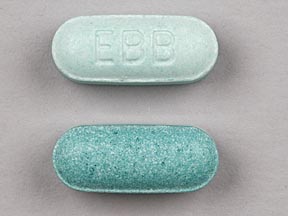Acetaminophen / Aspirin Dosage
Applies to the following strengths: buffered 250 mg-250 mg; 325 mg-500 mg
Usual Adult Dose for:
Usual Pediatric Dose for:
Additional dosage information:
Usual Adult Dose for Pain
Oral (acetaminophen 250 mg- aspirin 250 mg):
Initial dose: 2 caplets orally every 6 hours, not to exceed 8 caplets in 24 hours.
Usual Adult Dose for Rheumatoid Arthritis
Oral (acetaminophen 250 mg- aspirin 250 mg):
Initial dose: 2 caplets orally every 6 hours, not to exceed 8 caplets in 24 hours.
Usual Adult Dose for Backache
Oral (acetaminophen 250 mg- aspirin 250 mg):
Initial dose: 2 caplets orally every 6 hours, not to exceed 8 caplets in 24 hours.
Usual Pediatric Dose for Pain
Oral (acetaminophen 250 mg- aspirin 250 mg):
12 years or older:
Initial dose: 2 caplets orally every 6 hours, not to exceed 8 caplets in 24 hours.
Usual Pediatric Dose for Rheumatoid Arthritis
Oral (acetaminophen 250 mg- aspirin 250 mg):
12 years or older:
Initial dose: 2 caplets orally every 6 hours, not to exceed 8 caplets in 24 hours.
Usual Pediatric Dose for Backache
Oral (acetaminophen 250 mg- aspirin 250 mg):
12 years or older:
Initial dose: 2 caplets orally every 6 hours, not to exceed 8 caplets in 24 hours.
Renal Dose Adjustments
Detailed information concerning the pharmacokinetic disposition of aspirin in patients with renal dysfunction is not available. Aspirin should be used with caution in chronic renal insufficiency, since it may cause a transient decrease in renal function. The use of aspirin in patients with severe renal impairment (CrCl less than 10 mL/minute) is not recommended due to the potential for increased risk of salicylate toxicity.
Liver Dose Adjustments
Use acetaminophen with caution in patients with liver disease. Chronic use of acetaminophen is not recommended in patients with liver disease.
The use of aspirin in patients with severe hepatic impairment is not recommended due to the potential for increased risk of clinically significant bleeding and other adverse effects.
Precautions
Do not exceed the recommended dosage.
Patients who consume 3 or more alcoholic drinks daily should be counseled concerning the bleeding risks associated with aspirin use and the increased risk of liver damage associated with high dose acetaminophen use.
Aspirin should not be used in children or adolescents with viral infections or influenza symptoms due to the association with Reye's syndrome.
The use of aspirin is contraindicated for patients with the syndrome of asthma, rhinitis, and nasal polyps. Aspirin may cause severe urticaria, angioedema, or bronchospasm in these patients.
This combination product is contraindicated in patients with severe bleeding, coagulation or primary hemostasis disorders, nasal polyps associated with asthma, peptic ulcer, serious GI lesions, or on anticoagulant therapy.
The pharmacokinetic disposition of aspirin may be altered in elderly patients, use this combination product with caution.
Tinnitus and/or subjective hearing loss may occur with aspirin use.
Do not exceed 4 g of acetaminophen in a 24 hour period.
Dialysis
The dialysis clearance using a hollow fiber dialyzer averages 112 mL/min and results in removal of approximately 11% of the acetaminophen during an average dialysis session. The dialysis clearance using a Gambro dialyzer and a Dow hollow coil fiber dialyzer in series averages 292 mL/min. The effectiveness of dialysis in removing acetaminophen is limited because of the high capacity of the liver to remove the drug. There are no data available regarding the peritoneal dialysis removal of acetaminophen.
Detailed information concerning the removal of aspirin by hemodialysis is not available. Some investigators have suggested that aspirin and/or salicylate may be removed by hemodialysis and that aspirin dosing should follow dialysis sessions. There are no data available regarding the peritoneal dialysis removal of aspirin.
Other Comments
Drink a full glass of water (8 fluid ounces) with each dose.
More about acetaminophen / aspirin
- Check interactions
- Compare alternatives
- Reviews (2)
- Side effects
- During pregnancy
- Drug class: analgesic combinations
Related treatment guides
See also:
Further information
Always consult your healthcare provider to ensure the information displayed on this page applies to your personal circumstances.


